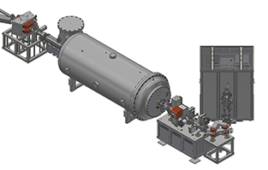A Purdue
Univ. researcher is
proposing development of a new cross-disciplinary approach for analyzing and
preventing systemic failures in complex systems that play a role in calamities
ranging from huge power blackouts to the BP Deepwater Horizon disaster and the
subprime mortgage crisis.
“The striking similarities in such catastrophes
necessitates a broader perspective to better understand such failures,”
said Venkat Venkatasubramanian, a professor of chemical engineering. “In
the history of systemic failures, a few disasters have served as wake-up calls.
The Flixborough chemical plant accident in the United Kingdom in 1974, where a
Nypro UK plant explosion killed 26 people, was one such call.”
Other such major catastrophes, he said, include a 1984
Union Carbide accident in Bhopal, India, which killed more than 2,000 and
injured more than 100,000, and the 1988 failure of an oil platform operated by
Occidental Petroleum in the North Sea, which resulted in 167 deaths and about
$2 billion in losses.
“Such systemic failures are not limited to the
chemical and petrochemical industries,” Venkatasubramanian said. “The
Northeast electrical power blackout in 2003 and a recent massive recall of drug
products are both systemic failures. Financial disasters such as Enron,
WorldCom, the subprime mortgage derivatives crisis and the Madoff Ponzi scam
also belong to the same class.”
The need for a new cross-disciplinary framework to address
such systemic failures was introduced in an article appearing in an issue of
the AIChE Journal.
“We must study all disasters from a common systems
engineering perspective so that one can thoroughly understand the commonalities
as well as the differences in order to better design and control such systems
in the future,” Venkatasubramanian said. “There is an important role
for universities here, as well, in creating and disseminating knowledge about
abnormal-events management in complex engineered systems and their public and
corporate policy implications.”
Such studies need to be carried out, he said, with public
policy experts so that the scientific and engineering lessons get translated
into effective policies and regulations.
“Typically, systemic failures occur due to fragility
in complex systems,” Venkatasubramanian said. “Modern technological
advances are creating a rapidly increasing number of complex engineered
systems, processes, and products, which pose considerable challenges in
ensuring their proper design, analysis, control, safety, and management for
successful operation over their life cycles.”
The sheer scale and complexity of interactions between
elements, including people, in such systems-of-systems make them fragile.
“In particular, the nonlinear interactions among a
large number of interdependent components and the environment can lead to what
we call ’emergent’ behavior,” Venkatasubramanian said. “In other
words, the behavior of the whole is different than the sum of its parts and can
be difficult to anticipate and control. This is further compounded by human
errors, equipment failures and dysfunctional interactions among components and
subsystems that make systemic risks even more likely if one is not vigilant all
the time.”
Postmortem investigations have shown that major disasters
rarely occur due to a single failure of equipment or personnel. Instead, layers
of failures of equipment, systems, processes, regulations, and people usually
are at fault, he said.
Often, Venkatasubramanian said, the responsibility for an
accident rests with the top levels of company management and a poor corporate
culture regarding safety.
“Professor Venkatasubramanian’s article in AIChE discusses the surprising
commonalities of systemic failures that lead to disasters, such as the Gulf of
Mexico oil spill, and outlines a role that academic institutions can play to
prevent such destructive events from happening in the future,” said John
W. Bickham, director of Purdue’s Center for the Environment and a professor in
the Department of Forestry and Natural Resources. “The highly
interdisciplinary field of systems engineering will play a key role in the
development of policies and procedures that can protect the environment and
human health and safety in the future.”




